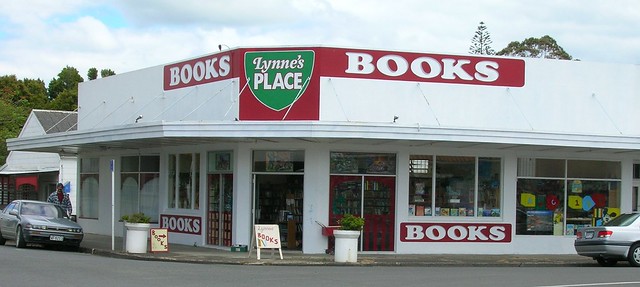Can New Zealand bookstores survive?
by Max Rashbrooke • December 20, 2011 • Fairfax NZ, Features • 0 Comments
First it was a trickle, then a flood. A few years ago, sales of e-books – electronic versions of books that can be downloaded and read on a computer or handheld device – were negligible.
Now, Amazon sells more e-books than paper ones, and on some predictions e-books will make up a sixth of a global US$80 billion book market by 2013.
These are glad tidings for online retailers. But might good old-fashioned high-street bookshops, locked into their traditional bricks and mortar, be swept away by this new tide?
Not if the bookshops themselves have anything to do with it. It’s true that they would struggle to sell e-books by themselves, because of the prohibitive cost of applying the complex data protection technology needed to stop e-books being copied repeatedly.
But help is at hand across the Tasman. Australian firm Read Cloud has developed a service that will allow people to buy e-books from independent bookstores and store them online in a “cloud” so that they can be read at any time. Title Page, a site created by Australian publishers, will offer a similar service.
Lincoln Gould, the head of Booksellers New Zealand, says both services should be available soon after Christmas, although progress has been “a bit slower than everybody hoped”.
Discussions are also under way to provide independents with an e-book reader device to sell to customers, as an alternative to products like the Kindle, which can only read Amazon’s e-books. “Once a Kindle is in somebody’s hands, we have lost that customer,” says Tim Blackmore of Nelson store Page and Blackmore.
David Cameron, the owner of Christchurch’s Scorpio Books, says independents “do see” the need to embrace e-books, although the technology will not change his business “as quickly as some of the technology pundits have predicted”.
Although e-books sales here could hit NZ$35 million by 2014, according to an Australian report earlier this year, Gould says “anecdotally, it’s early days”. But this Christmas may see e-book readers like the Kindle become popular presents, “so in 2012 you will start to see the real impact of e-books on the market”.
Cameron hopes to have his website ready to handle e-books early in the new year. But it’s not clear that customers will visit a bookshop’s website when they can buy from an online retailer – and the tide may be turning in the latter’s favour.
Around $100,000 of state money and book licensing fees has been spent making digital copies of existing print titles for the soon-to-launch Great New Zealand E-Books website. But as it stands, site visitors who want to buy the books will be directed either to Japanese-owned online store Kobo, or to New Zealand-based online retailers Wheelers and – technical issues permitting – Fishpond.
What about the bookshops? “That’s the million-dollar question,” says Paula Browning of Copyright Licensing Ltd, which is helping run the project. She is in talks with Booksellers New Zealand, which is thinking about “how that might work”. For his part, Gould says bookshops will be involved, although he is not yet sure of the detail: “A lot of these things are up in the air.”
Scorpio’s David Cameron says it “wouldn’t go down very well” if bookshops missed out on Great New Zealand E-Books sales. But he is much more excited about design innovations – such as textured and 3-D book covers – that turn hardback books into desirable objects, further distinguishing them from their electronic imitators.
And when e-books may be selling at $13 to $14, there is not much margin in it, especially once Read Cloud or Title Page take their cut. Selling e-books is, in Tim Blackmore’s words, mostly about “servicing the local community” that wants to support bookshops. “At the moment,” he says, “we have immensely loyal customers. That may change. It will certainly change if we can’t come up with a solution.”
First published by Fairfax NZ News
